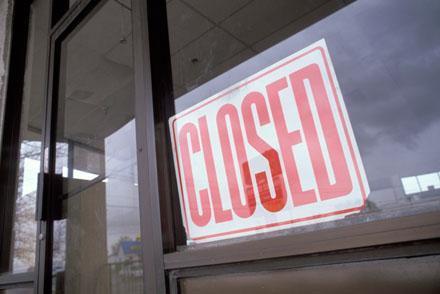
 847-995-1205
847-995-1205
Recent Blog Posts
Unemployment Benefits Could Come to Screeching Halt
 Although the country is well on the way toward full financial recovery after the economic crisis that rocked nearly every American industry in 2008 and 2009, unemployment numbers are still high. While there is a significant safety net for the unemployed in America, which includes benefits, unemployment insurance, and temporary compensation, that could be changing at the end of 2013. “Unless the president and Congress act before the end of the year, more than a million Americans will have the plug pulled on their jobless benefits the week after Christmas, and many others who've recently become unemployed or will become unemployed next year will see them sharply curtailed,” according to US News and World Report.
Although the country is well on the way toward full financial recovery after the economic crisis that rocked nearly every American industry in 2008 and 2009, unemployment numbers are still high. While there is a significant safety net for the unemployed in America, which includes benefits, unemployment insurance, and temporary compensation, that could be changing at the end of 2013. “Unless the president and Congress act before the end of the year, more than a million Americans will have the plug pulled on their jobless benefits the week after Christmas, and many others who've recently become unemployed or will become unemployed next year will see them sharply curtailed,” according to US News and World Report.
Non-Compete Agreements in Illinois: Where You Stand
 If you are a business owner and you are considering utilizing a non-compete agreement, it is important to understand the implications of the agreement. Employment law agreements to not compete often involve a specified duration of time, a specified geographic area, or combination of the two which limits your employee's ability to work in the same industry in which your business operates. Courts look to the interests of the employer, employee and the public in assessing the validity of non-compete agreements. In Illinois, the enforceability of non-compete agreements depends on the reasonableness of the agreement.
If you are a business owner and you are considering utilizing a non-compete agreement, it is important to understand the implications of the agreement. Employment law agreements to not compete often involve a specified duration of time, a specified geographic area, or combination of the two which limits your employee's ability to work in the same industry in which your business operates. Courts look to the interests of the employer, employee and the public in assessing the validity of non-compete agreements. In Illinois, the enforceability of non-compete agreements depends on the reasonableness of the agreement.
Reasonableness is often in the eye of the beholder, but thankfully the Illinois courts have delineated some generalizations as to determining the reasonableness of a non-compete agreement. As it is with so much of the law, reasonableness as it pertains to non-compete agreements is determined on a case-by-case basis by examining the totality of the circumstances underlying the agreement. A non-compete agreement may be seen as reasonable and valid under one set of circumstances but unreasonable and invalid under another set of circumstance.
Keeping an Eye Out for Employment Discrimination in Illinois
 No matter the size of your business, you should watch for potentially damaging situations that can stem from claims of workplace discrimination. In fiscal year 2012, the U.S. Equal Employment Opportunity Commission reported that there were 99,412 discrimination charges nationwide.
The report indicated that 5.5 percent of those total charges originated from Illinois. Illinois exceeded the national average for charges in several areas such as sexual, age and disability discrimination. Conversely, in areas such as race, religion and equal pay, Illinois percentages were beneath the national average.
No matter the size of your business, you should watch for potentially damaging situations that can stem from claims of workplace discrimination. In fiscal year 2012, the U.S. Equal Employment Opportunity Commission reported that there were 99,412 discrimination charges nationwide.
The report indicated that 5.5 percent of those total charges originated from Illinois. Illinois exceeded the national average for charges in several areas such as sexual, age and disability discrimination. Conversely, in areas such as race, religion and equal pay, Illinois percentages were beneath the national average.
| Discrimination Type | Nationwide | Illinois |
| Sexual | 4.8% | 26.24% |
The Difference between a Contractor and an Employee
 As a small business owner you will be faced with many difficult tasks and decisions. That is because as a business owner you will have a variety of business responsibilities each day including accounting, marketing and human resources. Employing a staff can also be costly if you do not classify your support team correctly. There are tax penalties as well as other financial burdens for making this kind of mistake so it is helpful to know the differences.
As a small business owner you will be faced with many difficult tasks and decisions. That is because as a business owner you will have a variety of business responsibilities each day including accounting, marketing and human resources. Employing a staff can also be costly if you do not classify your support team correctly. There are tax penalties as well as other financial burdens for making this kind of mistake so it is helpful to know the differences.
Defining an Independent Contractor:
- They have their own employees
- They operate under a different company name
- They invoice you for their completed services
- They keep their own hours
- They advertise their business's services
- They have more than one client
The benefits of hiring an independent contractor include cost savings for your bottom line. They require less liability and provide greater flexibility to hire and fire them. They will only be working when they have tasks to complete.
Wage and Hour Laws in Illinois
If you are an employee in the state of Illinois, it is important that you be familiar with the wage and hour laws. In the event that you have found yourself in a situation in which an employer has not paid you minimum wage or has violated hour laws, you want to be informed and educated so that you are aware of it and can fix the issue.
 The minimum wage here in Illinois is $8.25 per hour, although some exceptions do apply. Employers are required to pay employees working overtime at a rate of 1 ½ times their regular pay rate. They are also required by law to give employees at least 24 hours of rest time in each calendar week. However, if an employer acquires a permit, their employees can be allowed to work seven days each calendar week. This permit is only needed after seven weeks of an employee working seven days a week.
The minimum wage here in Illinois is $8.25 per hour, although some exceptions do apply. Employers are required to pay employees working overtime at a rate of 1 ½ times their regular pay rate. They are also required by law to give employees at least 24 hours of rest time in each calendar week. However, if an employer acquires a permit, their employees can be allowed to work seven days each calendar week. This permit is only needed after seven weeks of an employee working seven days a week.
When an employee works 7 ½ continuous hours or more, the employer is required to allow them to take a meal period of at least 20 minutes. This meal time does not have to be paid, but it must be given five hours after an employee begins working. When it comes to employees under the age of 16, Illinois law requires employers to provide a meal period of at least 30 minutes if the employee works more than five consecutive hours.
What is the Family Medical Leave Act?
Having a baby is expensive. There are diapers, formula, clothes and toys that will need to be purchased. That is why it is important to know what your employer's policy is about maternal and paternal leave. It is also necessary to know what you are entitled to if you are lucky enough to work for a company with a leave program.
The first step toward securing the current Family Medical Leave Act was actually the Civil Rights Act of 1964. It outlaws discrimination in hiring, promoting or firing based on sex as well as race. Later legislation was added to prohibit discrimination based on color creed, and age in all aspects of employment including training, testing, wages apprenticeships and all terms of employment.
One of the new protected classes are pregnant women. The Pregnancy Discrimination Act of 1978 implicitly states that you cannot be fired for being pregnant. It also allows for special considerations made for those that are pregnant if they are unable to complete their jobs as previously understood.
Record Requirements For Employers
 If your business is attempting to go paperless and cut down on clutter in the office, it's important to know what items you're expected to keep as part of record-keeping requirements and laws for your business. Failing to keep accurate records could land you and your company in a world of trouble, so taking the time to understand your responsibilities makes life (and filing) easier. If you're involved in any type of legal action or claim, it's much easier to obtain necessary documents for your attorney if you have already kept them filed properly.
If your business is attempting to go paperless and cut down on clutter in the office, it's important to know what items you're expected to keep as part of record-keeping requirements and laws for your business. Failing to keep accurate records could land you and your company in a world of trouble, so taking the time to understand your responsibilities makes life (and filing) easier. If you're involved in any type of legal action or claim, it's much easier to obtain necessary documents for your attorney if you have already kept them filed properly.
- Even if an employee has left your company, you need to keep personnel or employment records for a period of one year.
- Any information regarding employee benefit plans should be kept together for as long as the plan is active and for up to one year after an employee is terminated.
Salaried Workers
 Many people in the United States work hourly jobs and are paid based on a minimum wage according to the amount of hours they work each week. Other people, however, work salaried jobs and get paid a certain amount each year, for a job that typically requires about 40 hours of work per week, but is not paid according to hourly work.
Many people in the United States work hourly jobs and are paid based on a minimum wage according to the amount of hours they work each week. Other people, however, work salaried jobs and get paid a certain amount each year, for a job that typically requires about 40 hours of work per week, but is not paid according to hourly work.
Some people wonder, however, if they are expected to work 40 hours a week for a set salary, but have to work more than that, how they will be paid. Some employers are required to pay overtime, but that is not always the case.
Large businesses, defined as those that do at least $500,000 in business each year, are required to pay overtime at a rate of one and a half times the worker's normal pay rate for hours exceeding 40 in a normal work week. This is according to the Fair Labor Standards Act (FLSA). Small businesses do not have to abide by this law.
Minimum Wage Myths
In every state, the minimum wage is different, but across the country, very few people actually understand the laws that encompass minimum wage. Here are a few myths, and the truth about them:
Increasing the minimum wage will stimulate the economy.
- There is actually no real link between economic growth and the rate of minimum wage across the country. What has been seen in areas with a high minimum wage, however, is a higher amount of less-skilled employees.
Raising minimum wage does not reduce employment according to studies.
- Raising minimum wage causes job loss for less-skilled employees, according to research of University of Irvine economists and the Federal Reserve Board. This is because when employers must pay their workers more, they cannot continue to pay the same amount of people because it will cost more, and employers cut from the bottom. The least valuable workers, those with the fewest skills, are laid off first.
Are Undocumented Immigrants Entitled to Workers' Compensation
 There has been much talk lately about immigration reform and the impact it would have on the American employment market. Some fear that mass legalization would saturate the market and exert downward pressure on wages. Others fear that without a legalization plan, the U.S. is alienating precious knowledge workers that are part of the immigrant population. Another group argues that the current system does not collect income tax from undocumented workers, yet it allows them to obtain benefits that are funded with taxpayer money.
For example, assume someone is injured on the job. Normally, they would be entitled to Workers' Compensation payments under the Illinois Workers' Compensation Act. If the injury is grave enough, they would be entitled to permanent total disability. These disability payments come from taxes that the state collects from the tax-paying public and employer contribution. Are then undocumented workers, who are largely exempt from taxation, be entitled to file a claim when they are injured on the job? The answer is ‘Yes'!
An Illinois appellate court held that undocumented aliens are covered. The court agreed with the claimant that the Illinois Workers' Compensation Act imposed liability on employers for injuries arising in the course of employment and that liability applied to alien workers as well. The employer argued that the word ‘alien' in the Illinois Worker's Compensation Act applied to aliens who were legally working in the U.S. The court disagreed. It reasoned that if the legislature had wanted to exclude undocumented aliens form the Act's jurisdiction, it would have defined the term ‘alien' to mean only citizens of another country who were legally authorized to work in the U.S.
Employees have certain rights and protections independently of their immigration status. If you have questions about your rights as an employee, please contact an experienced Illinois employment law attorney.
There has been much talk lately about immigration reform and the impact it would have on the American employment market. Some fear that mass legalization would saturate the market and exert downward pressure on wages. Others fear that without a legalization plan, the U.S. is alienating precious knowledge workers that are part of the immigrant population. Another group argues that the current system does not collect income tax from undocumented workers, yet it allows them to obtain benefits that are funded with taxpayer money.
For example, assume someone is injured on the job. Normally, they would be entitled to Workers' Compensation payments under the Illinois Workers' Compensation Act. If the injury is grave enough, they would be entitled to permanent total disability. These disability payments come from taxes that the state collects from the tax-paying public and employer contribution. Are then undocumented workers, who are largely exempt from taxation, be entitled to file a claim when they are injured on the job? The answer is ‘Yes'!
An Illinois appellate court held that undocumented aliens are covered. The court agreed with the claimant that the Illinois Workers' Compensation Act imposed liability on employers for injuries arising in the course of employment and that liability applied to alien workers as well. The employer argued that the word ‘alien' in the Illinois Worker's Compensation Act applied to aliens who were legally working in the U.S. The court disagreed. It reasoned that if the legislature had wanted to exclude undocumented aliens form the Act's jurisdiction, it would have defined the term ‘alien' to mean only citizens of another country who were legally authorized to work in the U.S.
Employees have certain rights and protections independently of their immigration status. If you have questions about your rights as an employee, please contact an experienced Illinois employment law attorney.
Image courtesy of renjith krishnan /freedigitalphotos.net
Contact Us


Schaumburg, IL 60173
Phone: 847-995-1205
